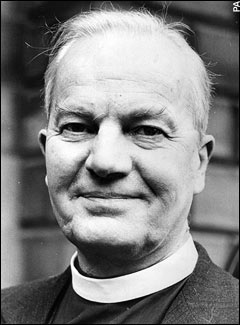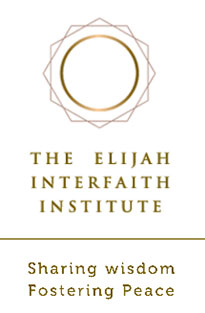
The World Council of Churches (WCC) is a worldwide Christian inter-church organization founded in 1948 to work for the cause of ecumenism. Its full members today include the Assyrian Church of the East, the Oriental Orthodox Churches, most jurisdictions of the Eastern Orthodox Church, the Old Catholic Church, the Lutheran churches, the Anglican Communion, the Mennonite churches, the Methodist churches, the Moravian Church, Mar Thoma Syrian Church and the Reformed churches, as well as the Baptist World Alliance and Pentecostal churches. Notably, the Catholic Church is not a full member, although it sends delegates to meetings who have observer status.

Ecumenism, also spelled oecumenism, is the concept and principle that Christians who belong to different Christian denominations should work together to develop closer relationships among their churches and promote Christian unity. The adjective ecumenical is thus applied to any initiative that encourages greater cooperation and union among Christian denominations and churches.

The Trilateral Commission is a nongovernmental international organization aimed at fostering closer cooperation between Japan, Western Europe and North America. It was founded in July 1973 principally by American banker and philanthropist David Rockefeller, an internationalist who sought to address the challenges posed by the growing economic and political interdependence between the U.S. and its allies in North America, Western Europe, and Japan.

The Christian Reformed Church in North America is a Protestant Calvinist Christian denomination in the United States and Canada. Having roots in the Dutch Reformed Church of the Netherlands, the Christian Reformed Church was founded by Dutch immigrants in 1857 and is theologically Calvinist.
The National Council of the Churches of Christ in the USA, usually identified as the National Council of Churches (NCC), is the largest ecumenical body in the United States. NCC is an ecumenical partnership of 38 Christian faith groups in the United States. Its member communions include mainline Protestant, Eastern Orthodox, African-American, evangelical, and historic peace churches. Together, it encompasses more than 100,000 local congregations and 40 million adherents. It began as the Federal Council of Churches in 1908, and expanded through merger with several other ecumenical organizations to become the National Council of Churches in 1950. Its Interim President and General Secretary is Bishop Vashti Murphy McKenzie.
The Catholic Theological Society of America (CTSA) is a professional association of Catholic theologians founded in 1946 to promote studies and research in theology within the Catholic tradition. Its members are primarily in the United States and Canada.

Thomas Forsyth Torrance, commonly referred to as T. F. Torrance, was a Scottish Protestant theologian and minister. Torrance served for 27 years as professor of Christian dogmatics at New College, in the University of Edinburgh. He is best known for his pioneering work in the study of science and theology, but he is equally respected for his work in systematic theology. While he wrote many books and articles advancing his own study of theology, he also edited the translation of several hundred theological writings into English from other languages, including the English translation of the thirteen-volume, six-million-word Church Dogmatics of Swiss theologian Karl Barth, as well as John Calvin's New Testament Commentaries. He was a member of the famed Torrance family of theologians.

The Canadian Council of Churches is a broad and inclusive ecumenical body, now representing 26 member churches including Anglican; Eastern and Roman Catholic; Evangelical; Free Church; Eastern and Oriental Orthodox; and Historic Protestant traditions. Together these member churches represent 13,500 worshiping communities and comprise 85% of the Christians in Canada.
The Federal Council of Churches, officially the Federal Council of Churches of Christ in America, was an ecumenical association of Christian denominations in the United States in the early twentieth century. It represented the Anglican, Baptist, Eastern Orthodox, Lutheran, Methodist, Moravian, Oriental Orthodox, Polish National Catholic, Presbyterian, and Reformed traditions of Christianity. It merged with other ecumenical bodies in 1950 to form the present day National Council of Churches.

Charles Habib Malik was a Lebanese academic, diplomat, philosopher, and politician. He served as the Lebanese representative to the United Nations, the President of the Commission on Human Rights and the United Nations General Assembly, a member of the Lebanese Cabinet, a national minister of Education and the Arts, and of Foreign Affairs and Emigration, and theologian. He participated in the drafting of the 1948 Universal Declaration of Human Rights.
Eastern Orthodoxy in North America represents adherents, religious communities, institutions and organizations of Eastern Orthodox Christianity in North America, including the United States, Canada, Mexico and other North American states. Estimates of the number of Eastern Orthodox adherents in North America vary considerably depending on methodology and generally fall in range from 3 million to 6 million. Most Eastern Orthodox Christians in North America are Russian Americans, Turkish Americans, Greek Americans, Arab Americans, Ukrainian Americans, Albanian Americans, Macedonian Americans, Romanian Americans, Bulgarian Americans and Serbian Americans, with Americans from other Eastern European countries and growing minorities of converted Americans of Western European, African, Latin American, and East Asian descent.

Western Rite Orthodoxy, also called Western Orthodoxy or the Orthodox Western Rite, are congregations within the Eastern Orthodox tradition which perform their liturgy in Western forms.

Christianity is the most prevalent religion in the United States. Estimates from 2021 suggest that of the entire US population about 63% is Christian. The majority of Christian Americans are Protestant Christians, though there are also significant numbers of American Roman Catholics and other minority Christian denominations such as Latter-day Saints, Orthodox Christians and Jehovah's Witnesses. The United States has the largest Christian population in the world and, more specifically, the largest Protestant population in the world, with nearly 210 million Christians and, as of 2021, over 140 million people affiliated with Protestant churches, although other countries have higher percentages of Christians among their populations. The Public Religion Research Institute's "2020 Census of American Religion", carried out between 2014 and 2020, showed that 70% of Americans identified as Christian during this seven-year interval. In a 2020 survey by the Pew Research Center, 65% of adults in the United States identified themselves as Christians. They were 75% in 2015 70.6% in 2014, 78% in 2012, 81.6% in 2001, and 85% in 1990. About 62% of those polled claim to be members of a church congregation. "In God We Trust" is the modern official motto of the United States, as established in a 1956 law signed by President Dwight D. Eisenhower. The phrase first appeared on U.S. coins in 1864.

Anglican interest in ecumenical dialogue can be traced back to the time of the Reformation and dialogues with both Orthodox and Lutheran churches in the sixteenth century. In the nineteenth century, with the rise of the Oxford Movement, there arose greater concern for reunion of the churches of "Catholic confession". This desire to work towards full communion with other denominations led to the development of the Chicago-Lambeth Quadrilateral, approved by the Third Lambeth Conference of 1888. The four points were stipulated as the basis for church unity, "a basis on which approach may be by God's blessing made towards Home Reunion":
Uniatism, method of union of the past, and the present search for full communion, also known as the Balamand declaration and the Balamand document, is a 1993 report written by the Joint International Commission for Theological Dialogue Between the Catholic Church and the Orthodox Church during its 7th plenary session at University of Balamand's Balamand School of Theology in Lebanon. The report discusses ecclesiological principles and suggests practical rules for both the Catholic Church and the Eastern Orthodox Churches to implement about improving relations by reciprocally avoiding interfering in each other's Churches and not using history in a polemical manner. According to Cardinal Edward Cassidy, the report contains three principles: that individuals have the freedom to follow their conscience, that Eastern Catholic Churches have the right to exist, and that uniatism is not the current method of full communion; and two conclusions: that the Catholic Church and the Eastern Orthodox Churches are "Sister Churches" and that rebaptism should be avoided. The Eastern Catholics rejected the report "because it seemed to imply they should never have existed in the first place" while the Eastern Orthodox rejected it because it did not call for the abolition of the Eastern Catholic Churches.
Phyletism or ethnophyletism is the principle of nationalities applied in the ecclesiastical domain: in other words, the conflation between church and nation. The term ethnophyletismos designates the idea that a local autocephalous church should be based not on a local (ecclesial) criterion, but on an ethnophyletist, national or linguistic one. It was used at the local council held in Constantinople on 10 September 1872 to qualify "phyletist (religious) nationalism", which was condemned as a modern ecclesial heresy: the church should not be confused with the destiny of a single nation or a single race.

Vilakuvelil Cherian Samuel, called Samuel Achen was an Indian Christian philosopher, scholar, university professor, theologian, historian, polyglot and ecumenical leader. He was a priest of the Indian Orthodox Church. He was the author of many doctrinal books and papers including The Council of Chalcedon Re-Examined: Historical Theological Survey.

Elijah Interfaith Institute is a nonprofit, international, UNESCO-sponsored interfaith organization which was founded by Rabbi Alon Goshen-Gottstein in 1997.
Jan V. White (1928-2014) was an American designer, communication design consultant, and graphic design educator and writer.
Robert Cooley Angell was an American sociologist and educator. Committed to the advancement of rigorous social scientific research, Angell's work focussed on social integration and the pursuit of a more peaceful world order. Professor Angell enjoyed the highest honors which his discipline bestowed, presiding over both the American Sociological Society (1951) and the International Sociological Association (1953–1956). As a devoted educator, Angell was instrumental in developing the Honors Program at the University of Michigan, becoming its first director from 1957–1960.












